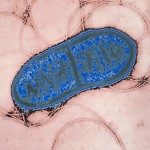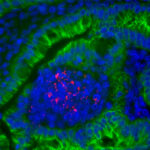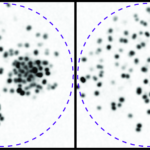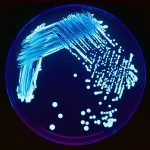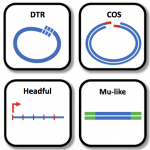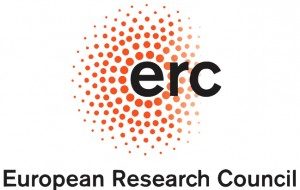The Synthetic Biology Group investigates genetic systems that emerge as a result of the arms race between bacteria and bacteriophages, and how these systems can be harnessed as novel biotechnological tools.
Bacteriophages, the viruses of bacteria, impose a constant selective pressure on bacteria to evolve resistance mechanisms. The investigation of anti-phage systems has led to the discovery of fascinating molecular mechanisms. Some of these systems, such as restriction-methylation systems and CRISPR-Cas systems, have been harnessed into powerful molecular tools.
Our laboratory works both on fundamental aspects of bacteria – phage interactions, and on the development of novel technologies to better study and control bacteria.
On the fundamental side, our recent work has focused on the description of novel anti-phage defense systems and their impact on the complex dynamics that exist between bacteria, phages and phage satellites (Depardieu et al., Cell Host & Microbes 2016; Rousset et al., Cell Host & Microbes 2022; Burman, Nature 2024).
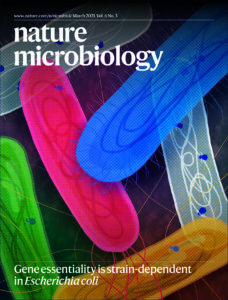 On the applied side, we have developed novel CRISPR tools to edit bacterial genomes, control their gene expression and specifically eliminate dangerous bacteria. We have focused in particular on the catalytic dead variant of the Cas9 protein (dCas9) to control gene expression, in a strategy also known as CRISPRi (Bikard et al., NAR, 2013). Our work led to the description of design rules for CRISPRi experiments in Bacteria, and strategies for fine-tuned control of gene expression (Cui et al, Nat. Comm., 2018; Vigouroux et al, Mol. Syst. Biol., 2018; Calvo-Villamanan, NAR, 2021). We have developed high-throughput CRISPR screening approaches and applied them to obtain novel biological insights into the genetics of the E. coli species (Rousset et al., PLoS Genet., 2018; Rousset et al., Nature Microbiology, 2021). We are now seeking to apply CRISPR-Cas tools to investigate the genetics of bacteria of the gut microbiome.
On the applied side, we have developed novel CRISPR tools to edit bacterial genomes, control their gene expression and specifically eliminate dangerous bacteria. We have focused in particular on the catalytic dead variant of the Cas9 protein (dCas9) to control gene expression, in a strategy also known as CRISPRi (Bikard et al., NAR, 2013). Our work led to the description of design rules for CRISPRi experiments in Bacteria, and strategies for fine-tuned control of gene expression (Cui et al, Nat. Comm., 2018; Vigouroux et al, Mol. Syst. Biol., 2018; Calvo-Villamanan, NAR, 2021). We have developed high-throughput CRISPR screening approaches and applied them to obtain novel biological insights into the genetics of the E. coli species (Rousset et al., PLoS Genet., 2018; Rousset et al., Nature Microbiology, 2021). We are now seeking to apply CRISPR-Cas tools to investigate the genetics of bacteria of the gut microbiome.
We are hiring !!!!!!!!!
Postdoctoral position – Synthetic Biology / Bacterial Immunity
Find plasmids and strains of the lab here:
Engineering bacteria with CRISPR (2018 iBiology talk)




 Find David Bikard Lab Plasmids
Find David Bikard Lab Plasmids












